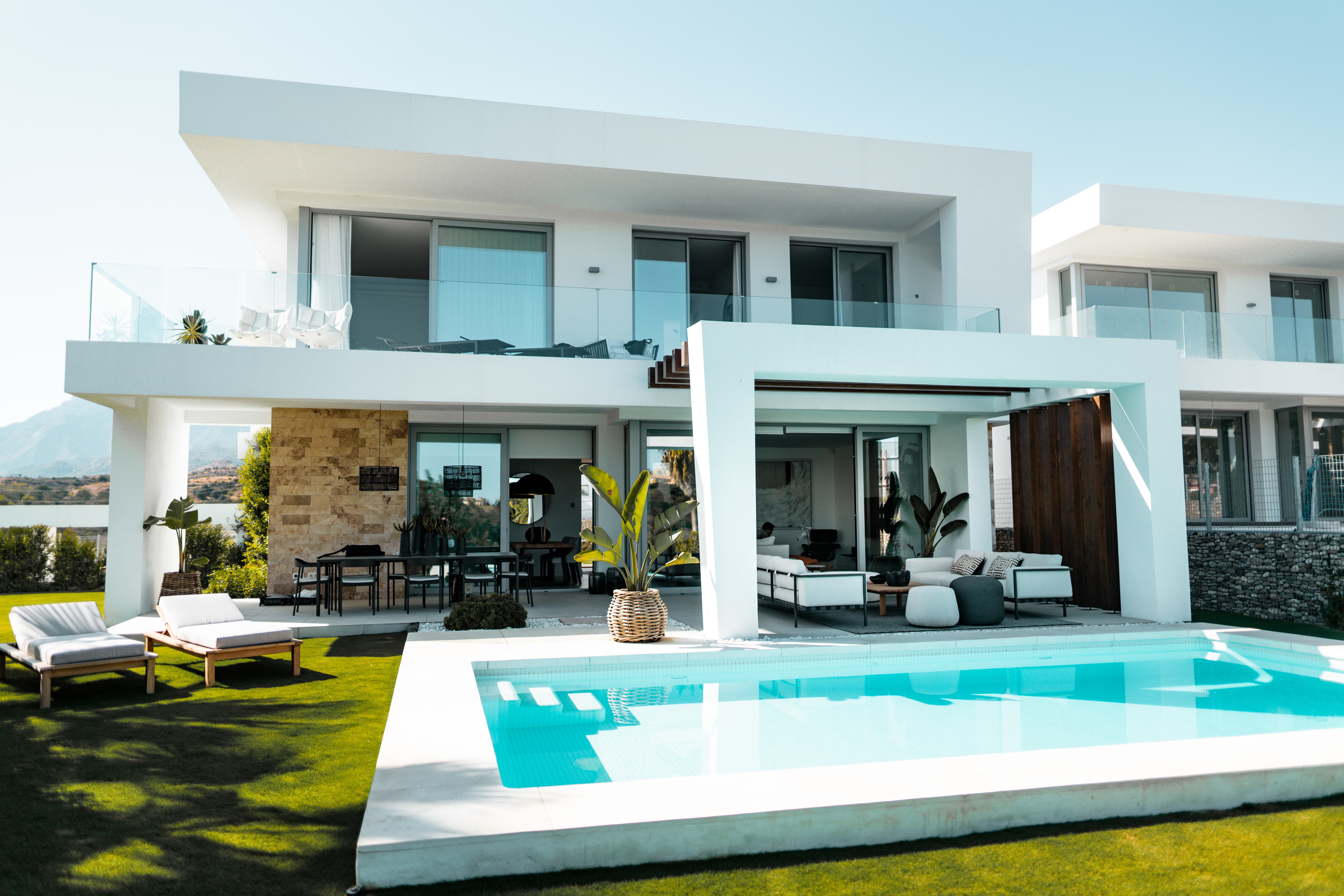Does a Pool Increase Home Value?
April 7, 2022
The idea of having a swimming pool in your backyard is appealing to many homeowners, especially if you live in a hot climate. After all, what’s more refreshing on a hot summer day than a dip in your own pool? While swimming pools are desirable and provide many conveniences, they are also very expensive. At most, a pool can cost upwards of $100,000, according to HomeAdvisor.
Pool installations are high-end expenses that may be worth investing in for pleasure. However, if you are wondering if adding a pool to your home increases its value, the answer is maybe but not by a lot. So, does a pool increase home value? Here is everything you need to know about the effects of adding a pool to your home.
Read More: 5 Factors That Influence A Home’s Value
Inground Pools vs Above-Ground Swimming Pools
Families had a lot of leisure time during the Covid-19 epidemic, and they were searching for methods to enjoy their free time. With schools closed and stay-at-home orders put in place, the demand for above-ground pools rose significantly. Above-ground pools are typically much less expensive than inground pools with the average cost being between $800 to $15,000 and inground pools between $20,000 to $60,000.
When it comes to the effect above-ground pools have on the value of a home, they don’t have too much of an influence on the home value. Above-ground pools aren’t seen as luxuriant or elegant as inground pools. Although, it’s important to note that there are different types of above-ground pools and those that are more high-end can enhance the curb appeal of the house, increasing its value in the eyes of the buyer.
In specific situations when a buyer may want an above-ground pool and few other homes have them, they can increase value; however, in most cases, they are not known to.
Inground pools, on the other hand, are known to increase property value but not by much. On average, inground pools boost property value by 5% to 8%. That probably won’t give you a full return on the cost of having the inground pool, but it may be an bonus benefit in addition to the convenience of having one.

Adding a Pool To Your Home: 3 Factors To Consider
Ideally, a swimming pool will have monetary value while at the same time providing enjoyment to the family. Unfortunately, this is not always the case as many different factors can affect how much a pool will impact your home’s value. Depending on where the property is and who you are selling to, a pool can be what makes or breaks a deal. Although, such instances are rare. Here are the 3 factors that influence a pool’s monetary worth to home sellers.
1. What The Buyer Wants
Like with any sale, what the buyer wants is the most important aspect of the transaction. If a buyer wants a pool, then your property becomes more valuable; if the buyer doesn’t, then your property decreases in value. A couple with a newborn or toddler probably won’t want a pool because of the hazards that could bring for their children. A retired couple, on the other hand, may be drawn to the convenience of having a pool to kill some of their free time.
2. The Quality of the Swimming Pool
Pool costs don’t stop at installation, there is also maintenance which can be a costly continual process. Maintenance costs can include having the pool vacuumed, cleaned, and maintaining proper pH levels. According to HomeAdvisor, the average cost of maintaining a pool is $1,200 to $1,800 per year. However, keeping your pool maintained, cleaned, and in working order is more likely to increase the property value. Homebuyers want to see opportunity instead of liability and an unkempt pool only furthers the latter.
3. The Location
If a pool is standard in the neighborhood where your home is located, a home without one may be less unique. Neighborhoods with luxury houses are expected to have a sophisticated pool to stay competitive in the market.
Pools are a better selling point in hotter climates where they can be used year-round. In the Midwest or in cooler climates, pools may not have the same appeal as homeowners can only use them for a few months out of the year. Inground pools in LA, for example, usually add $95,000 in value.
Does a Pool Increase Home Value? Here’s The Answer
Having a pool installed for pleasure or leisurely activities is always appealing, but if you’re expecting to make a return on your investment when you are selling the property, it may not be the greatest investment. Pools don’t generally influence property value a large amount and in some cases, they may even decrease the value of your home.
If you need to have a pool, make sure to keep it clean and well-maintained as an unkempt pool will only further devalue your property. As with any home improvement, do extensive research on what kind of pool you want and how it will fit in with the surrounding landscape. After a little bit of research, you can make an informed decision about whether or not a pool is right for you.
Photo by John Fornander on Unsplash

